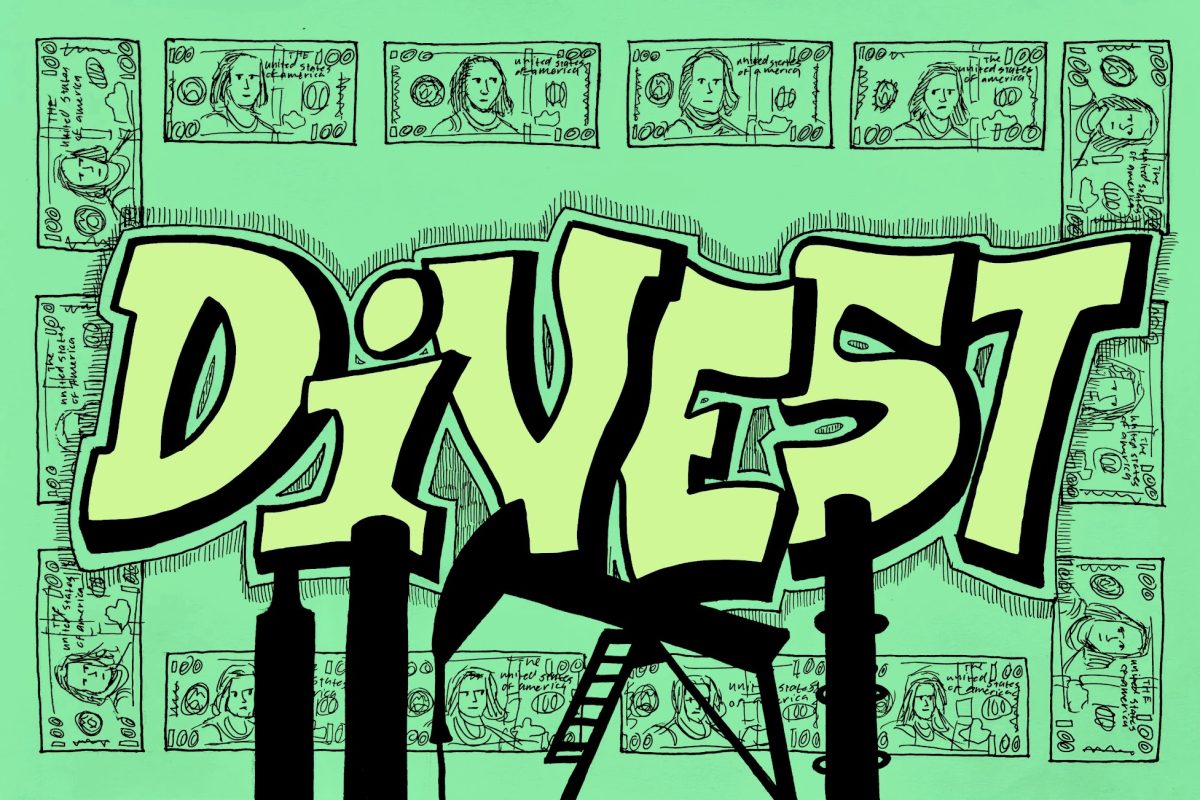As the earth warms, causing our sea levels to rise and our ecosystems to diminish, nations have become increasingly wary of the role human activity has in these crises. At the center of this discussion lie fossil fuels, which are the primary source of approximately 65% of global greenhouse gas emissions.
As a result, student activists at UT have recently begun to push for divestment from the fossil fuel industry. This is a monumental demand considering the Permanent University Fund — which benefits the UT and A&M systems — owns 2.1 million acres of land in West Texas. As of 2022, the leases on the territory produced a net 65,000 barrels of oil equivalent per day, and two-thirds of this revenue corresponds to the UT System, as is stipulated in the state constitution.
Although many institutions have divested from the fossil fuel industry, with UT’s financial position, this isn’t an adequate step for our university. A more adequate approach would include redirecting our efforts towards more feasible climate solutions.
Several other schools have sold their assets and moved funds out of the fossil fuel industry to fulfill their commitments. But even if the UT and A&M systems sold portions of the lands they own, the university wouldn’t reduce emissions. On the contrary, it would contribute to the fossil fuel market by increasing the number of drillable plots available, shifting the blame from ourselves to other financial entities.
Another option to divest would be to cease operations on university lands by discontinuing and canceling future leases. This is a more viable alternative, but it would require approval from the state legislature, the Board of Regents and Texas A&M, which is nearly logistically impossible. Carey King, an assistant director at the UT Energy Institute, said while divestment efforts yield results across the country, it is hard to imagine it producing similar outcomes for UT.
“It’s hard for me to think about a more difficult or more complicated divestment process if somebody wanted to do it,” King said.
Even if this method of divestment was feasible, it would still be a highly detrimental move for the university to make. The PUF has historically been heavily reliant on our fossil fuel capabilities. The revenue produced by oil is arguably one of the largest contributors to the success of the University of Texas, with our endowment having grown to over $42 billion as of 2022.
Sheridan Titman, finance professor and director of the Energy Management and Innovation Center suggested that such a move would be ineffective and debilitating.
“The question is whether you want to just waste the oil and say we don’t want to develop it and throw it away, in a sense,” Titman said. “But then we’re just giving away our endowment, I don’t really think many people would be in favor of that.”
This revenue, which we would otherwise miss out on, allows us to be independent. Most universities rely on investments, donations and government allocations for funding, but these sources often run dry during economic hardship, as occurred in 2011. The following year, UT received a record payout of $400 million dollars from the PUF, reflecting the dire need for such a mode of funding.
Fossil fuel revenue has funded various construction projects, programs, and acquisitions at UT. By repurposing these funds to causes that outweigh the harm their origins have created, the energy source can continue to create positive change. For example, investment in environmentally-directed research, a transition toward a carbon neutral model throughout the UT system’s 14 institutions, and a responsible facilitation of university-owned land use and clean up of drilling sites.
In many ways, the call for UT’s divestment is seen, and rightfully so, as merely performative activism. A premature exit from fossil fuels would not reduce the net environmental impact of the industry, instead it would limit the university’s financial potential. To inspire real and fruitful progress and change, we must repurpose our efforts and urge the university to utilize the profit from our leases to enable a transition to clean energy.
Rodriguez is an Economics and Philosophy double major from Tyler, TX.















